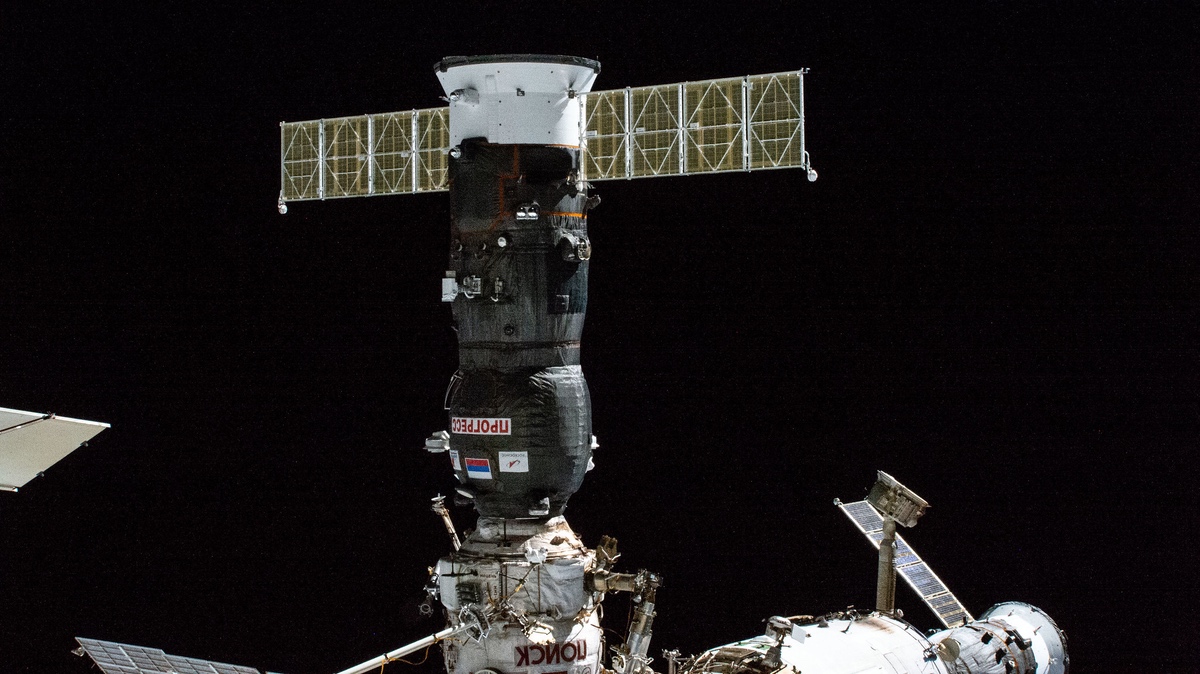Products You May Like
WASHINGTON — A Progress cargo spacecraft docked to the International Space Station experienced a coolant leak Feb. 11, the second such incident involving a Russian spacecraft at the station in less than two months.
The Russian space agency Roscosmos reported a “depressurization” in the Progress MS-21 spacecraft shortly after another cargo spacecraft, Progress MS-22, docked with the station at 3:45 a.m. Eastern. The agency didn’t elaborate on the depressurization in a statement posted on its Telegram social media account, but said there was no threat to the crew. Other, unofficial accounts said the depressurization referred to the spacecraft’s coolant loop.
NASA, in a statement several hours later, confirmed the problem was with the coolant system on the Progress spacecraft, designated Progress 82 by the agency. “The hatches between the Progress 82 and the station are open, and temperatures and pressures aboard the station are all normal,” NASA stated, adding that the leak is being investigated and there are no other issues with ISS operations.
Progress MS-21 launched to the station last October delivering fuel, water and other cargo. It is scheduled to undock from the station Feb. 17 and destructively reenter. That departure is currently not affected by the coolant leak.
This incident took place nearly two months after the Soyuz MS-22 spacecraft docked to the station suffered a coolant leak. Roscosmos blamed that leak on a micrometeoroid impact, an explanation that NASA, at least publicly, accepted.
“Everything does point to a micrometeoroid impact,” Joel Montalbano, NASA ISS program manager, said at a Jan. 11 briefing about the Soyuz leak. “Nothing was off-nominal in the manufacturing of the vehicle.”
Soyuz MS-22 launched to the ISS last September, a little more than a month before the Progress MS-21 launch. Russian officials haven’t elaborated on the nature of the Progress coolant leak or speculated on a cause.
The Soyuz spacecraft leak led Roscosmos, in concurrence with ISS partners, to launch the next Soyuz spacecraft to the station without a crew. Soyuz MS-23 is scheduled to launch Feb. 20, docking with the station two days later. Soyuz MS-22 will later return to Earth without a crew.
That will extend the stay of the Soyuz MS-22 crew, Roscosmos cosmonauts Sergey Prokopyev and Dmitri Petelin and NASA astronaut Frank Rubio, by several months. The three were scheduled to return in Soyuz MS-22 in March, but will instead return home likely in the fall on Soyuz MS-23 after the launch of a new crew on Soyuz MS-24.
While Roscosmos blamed the Soyuz MS-22 leak on an unlucky micrometeoroid strike, Sergei Krikalev, executive director of human spaceflight programs at Roscosmos, said that technicians “double-checked, triple-checked” the Soyuz MS-23 spacecraft as a precaution. “We don’t have any issues with the next Soyuz,” he said at the Jan. 11 briefing.
